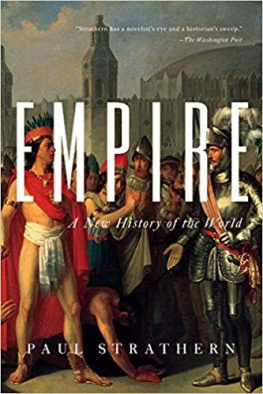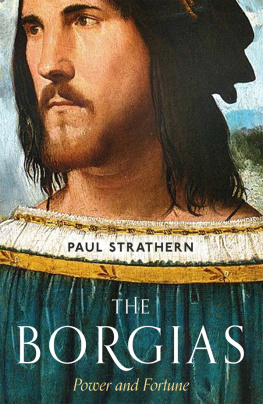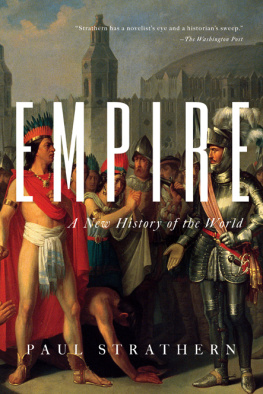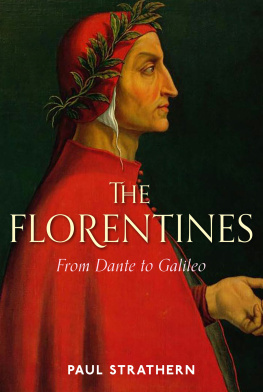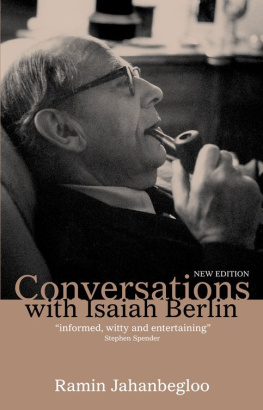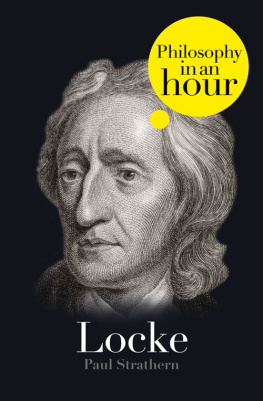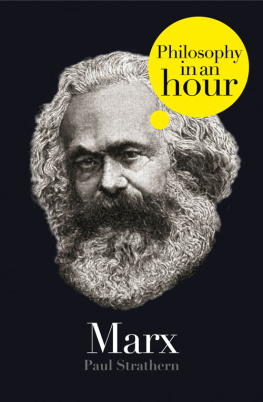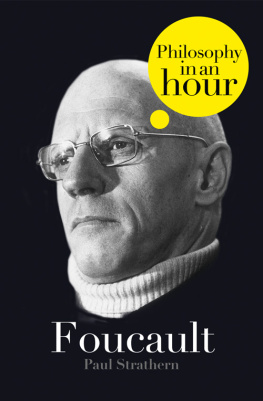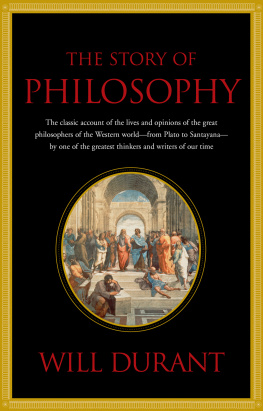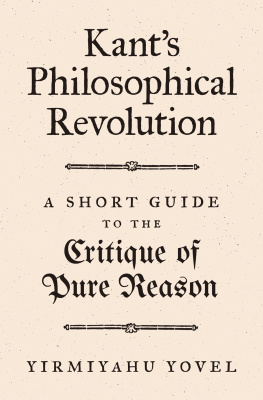Chronology of Significant Philosophical Dates
| 6th C B.C. | The beginning of Western philosophy with Thales of Miletus. |
End of
6th C B.C. | Death of Pythagoras. |
| 399 B.C. | Socrates sentenced to death in Athens. |
| c 387 B.C. | Plato founds the Academy in Athens, the first university. |
| 335 B.C. | Aristotle founds the Lyceum in Athens, a rival school to the Academy. |
| 324 A.D. | Emperor Constantine moves capital of Roman Empire to Byzantium. |
| 400 A.D. | St. Augustine writes his Confessions. Philosophy absorbed into Christian theology. |
| 410 A.D. | Sack of Rome by Visigoths heralds opening of Dark Ages. |
| 529 A.D. | Closure of Academy in Athens by Emperor Justinian marks end of Hellenic thought. |
| Mid-13th C | Thomas Aquinas writes his commentaries on Aristotle. Era of Scholasticism. |
| 1453 | Fall of Byzantium to Turks, end of Byzantine Empire. |
| 1492 | Columbus reaches America. Renaissance in Florence and revival of interest in Greek learning. |
| 1543 | Copernicus publishes On the Revolution of the Celestial Orbs, proving mathematically that the earth revolves around the sun. |
| 1633 | Galileo forced by church to recant heliocentric theory of the universe. |
| 1641 | Descartes publishes his Meditations, the start of modern philosophy. |
| 1677 | Death of Spinoza allows publication of his Ethics. |
| 1687 | Newton publishes Principia, introducing concept of gravity. |
| 1689 | Locke publishes Essay Concerning Human Understanding. Start of empiricism. |
| 1710 | Berkeley publishes Principles of Human Knowledge, advancing empiricism to new extremes. |
| 1716 | Death of Leibniz. |
| 17391740 | Hume publishes Treatise of Human Nature, taking empiricism to its logical limits. |
| 1781 | Kant, awakened from his dogmatic slumbers by Hume, publishes Critique of Pure Reason. Great era of German metaphysics begins. |
| 1807 | Hegel publishes The Phenomenology of Mind, high point of German metaphysics. |
| 1818 | Schopenhauer publishes The World as Will and Representation, introducing Indian philosophy into German metaphysics. |
| 1889 | Nietzsche, having declared God is dead, succumbs to madness in Turin. |
| 1921 | Wittgenstein publishes Tractatus Logico-Philosophicus, claiming the final solution to the problems of philosophy. |
| 1920s | Vienna Circle propounds Logical Positivism. |
| 1927 | Heidegger publishes Being and Time, heralding split between analytical and Continental philosophy. |
| 1943 | Sartre publishes Being and Nothingness, advancing Heideggers thought and instigating existentialism. |
| 1953 | Posthumous publication of Wittgensteins Philosophical Investigations. High era of linguistic analysis. |
Chronology of Kants Life
| April 22, 1724 | Immanuel Kant born in Knigsberg in East Prussia. |
| 1737 | Kants mother dies. |
| 1741 | Kant enters the University of Knigsberg. |
| 1746 | Kants father dies and he is forced to leave the university to support himself as a private tutor. |
| 1755 | He finally takes his degree at the University of Knigsberg. |
| 1755 | Becomes privatdozent (equivalent of junior lecturer) at the university and delivers lectures on mathematics, philosophy, anthropology, and physical geography. |
| 1770 | Appointed professor of logic and metaphysics. |
| 1781 | Publishes Critique of Pure Reason. |
| 1788 | Publishes Critique of Practical Reason. |
| 1790 | Publishes Critique of Judgment. |
| October 1803 | Falls ill for the first time in his life. |
February 12,
1804 | Dies and is buried in Knigsberg Cathedral. |
Chronology of Kants Era
| 1739 | The Scottish philosopher David Hume publishes A Treatise of Human Nature. |
| 1743 | Birth of Thomas Jefferson. |
| 17501752 | Voltaire takes up residence at the court of Frederick II of Prussia in Potsdam. |
| 1751 | Death of French philosopher La Mettrie. |
| 1759 | Founding of British Museum. |
| 1762 | Rousseau publishes mile, which causes Kant to break his routine and miss his afternoon walk. |
| 1770 | Birth of Hegel. |
| 1774 | Goethe publishes The Sorrows of Young Werther. |
| 1776 | American Declaration of Independence. Death of Hume. |
| 1778 | Death of Rousseau. |
| 1789 | French Revolution. George Washington becomes first president of the United States. |
| 1799 | Napoleon becomes first consul of France. |
| 1804 | Napoleon becomes ruler of Germany. |
A NOTE ON THE AUTHOR
Paul Strathern has lectured in philosophy and mathematics and now lives and writes in London. A Somerset Maugham prize winner, he is also the author of books on history and travel as well as five novels. His articles have appeared in a great many publications, including the Observer (London) and the Irish Times. His own degree in philosophy was earned at Trinity College, Dublin.
NOW PUBLISHED IN THIS SERIES:
Thomas Aquinas in 90 Minutes
Aristotle in 90 Minutes
St. Augustine in 90 Minutes
Berkeley in 90 Minutes
Confucius in 90 Minutes
Derrida in 90 Minutes
Descartes in 90 Minutes
Foucault in 90 Minutes
Hegel in 90 Minutes
Heidegger in 90 Minutes
Hume in 90 Minutes
Kant in 90 Minutes
Kierkegaard in 90 Minutes
Leibniz in 90 Minutes
Locke in 90 Minutes
Machiavelli in 90 Minutes
Marx in 90 Minutes
Nietzsche in 90 Minutes
Plato in 90 Minutes
Rousseau in 90 Minutes
Bertrand Russell in 90 Minutes
Sartre in 90 Minutes
Schopenhauer in 90 Minutes
Socrates in 90 Minutes
Spinoza in 90 Minutes
Wittgenstein in 90 Minutes
IN PREPARATION:
Dewey, Freud, J. S. Mill
Recommended Reading
David Appelbaum, The Vision of Kant (Element Books, 1995)
Michael Friedman, Kant and the Exact Sciences (Harvard University Press, 1992)
Paul Guyer, ed., The Cambridge Companion to Kant (Cambridge University Press, 1992)
Ben-Ami Scharfstein, The Philosophers: Their Lives and the Nature of Their Thought (Oxford University Press, 1989)
Norman K. Smith, ed., Critique of Pure Reason (St. Martins, 1969)
Kants Life and Works
Immanuel Kant was born April 22, 1724, in the Baltic city of Knigsberg, then the capital of the isolated German province of East Prussia (now Kaliningrad in Russia). Kants ancestors had emigrated from Scotland in the preceding century and may well have been related to the notorious seventeenth-century Scottish preacher Andrew Cant, who is said to have been the origin of the verb to cant with regard to the use of jargona family trait which was to reappear with a vengeance in the philosopher.
At the time of Kants birth East Prussia was recovering from the devastation of war and plague, which had reduced the population by over half. Kant grew up in an atmosphere of pious poverty. He was the fourth child of the family, which eventually included five sisters and one other brother. Kants Scottish father was a cutter of leather straps who jocularly claimed that he could never make both ends meet either at home or at work. Kant always remained respectful of his likable but financially harassed father, and as a child is said to have enjoyed watching him deftly cutting up pieces of leather for harnesses. Yet according to the philosophical psychologist Ben-Ami Scharfstein, in the light of his fathers dexterity Kants great clumsiness with his hands is therefore noteworthy.



